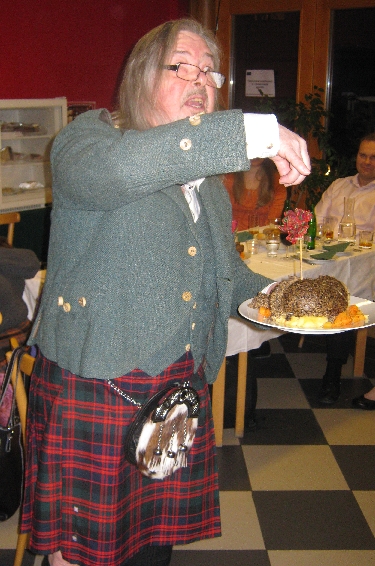
25th January is the birthday of the famous Scottish poet Robbie Burns (1759-1796). There is a long-standing tradition of holding a ‘Burn’s Night Supper on or around 25th January each year at which the life and poetry of Robbie Burns is celebrated. Brilliantly organised by my Church Treasurer, Gordon MacDonald Truefitt, St. Clement’s Church held a Burn’s Night Supper on the evening of Friday 25th January 2013 and combined it with a Ceilidh, at which various Scottish and Irish dances were taught and danced.
The evening was designed with two purposes in mind, both of which are somewhat inter-related. One was to try and put on a social event which would enable the disparate members of the congregation to spend time together and therefore get to know each other better. The second, was to provide an event to which members of the congregation could invite their non-worshipping friends, to experience and realise that Christians can have fun together and hopefully draw them into our worshipping community.
Through Gordon’s good offices we had both a most suitable venue – Michelský Dvur, belonging to the Sue Ryder Foundation. And we had an excellent Czech Celtic band ‘Mestská’, who entertained us whilst we ate and then provided the music for the Ceilidh that followed. Over fifty people attended of whom just over half were members of the congregation with the rest being invited friends and guests. As on any Sunday morning at St. Clement’s, the number of nationalities present ran into double figures.
I trust that the photographs below help to give a flavour to what was a wonderful evening.


|
|
|



